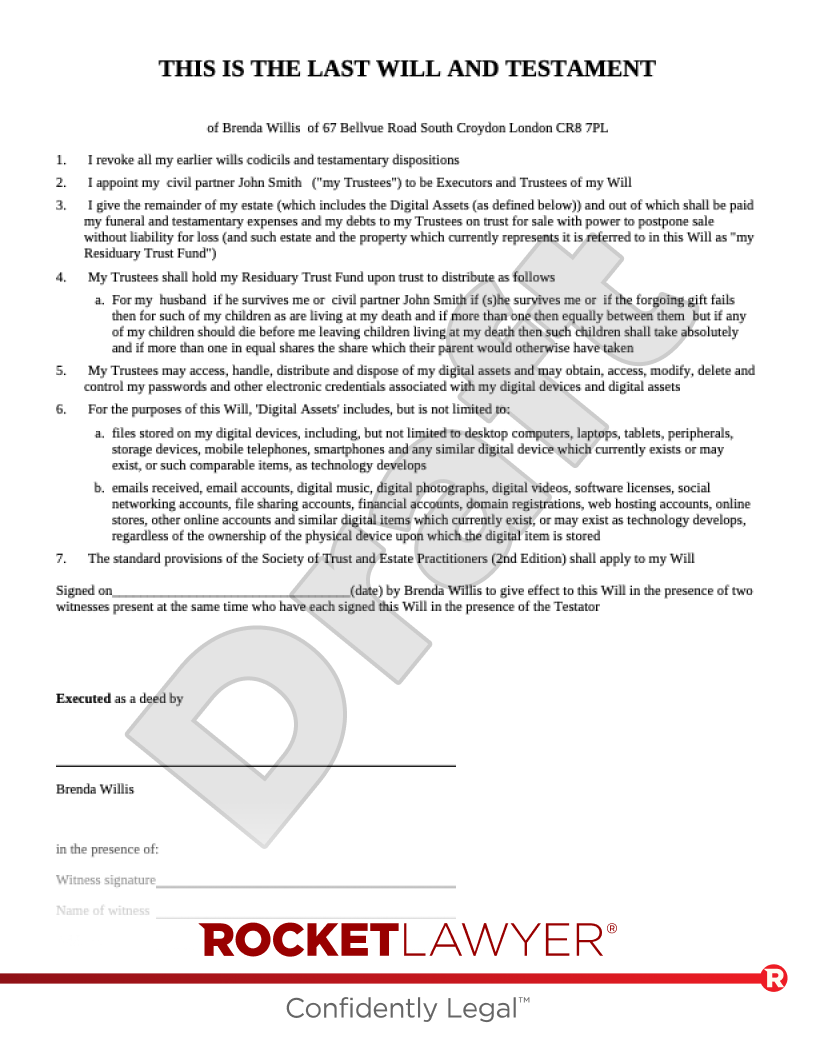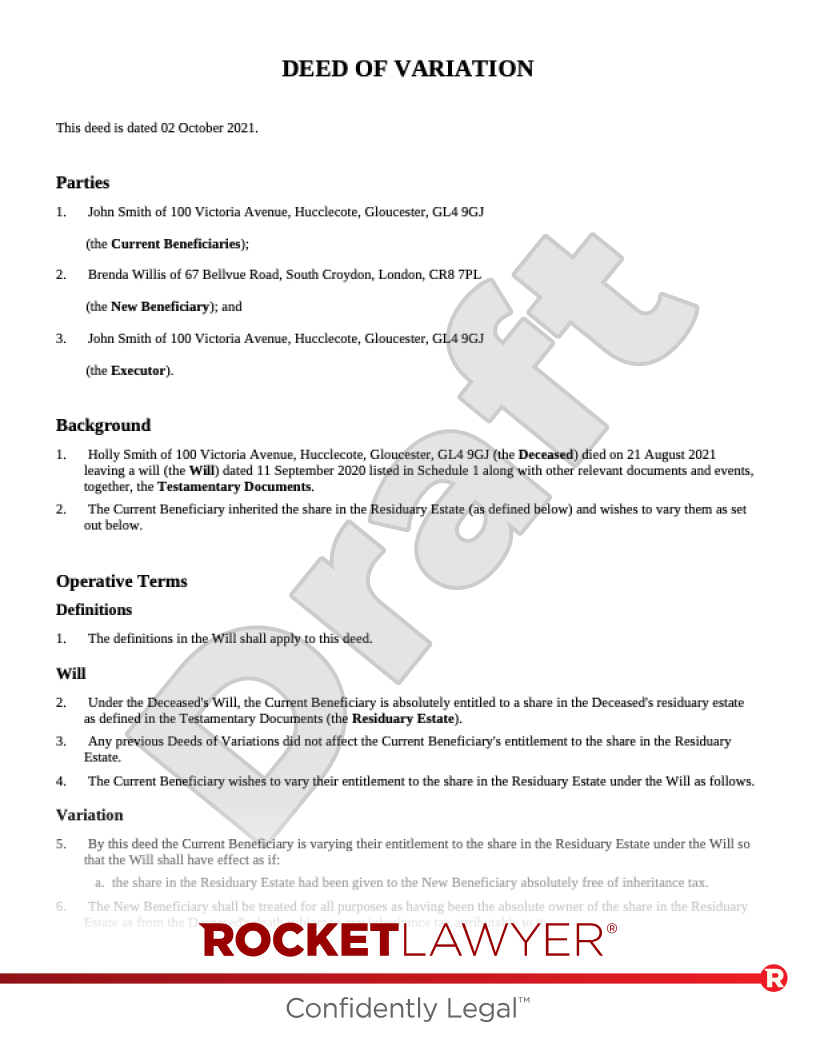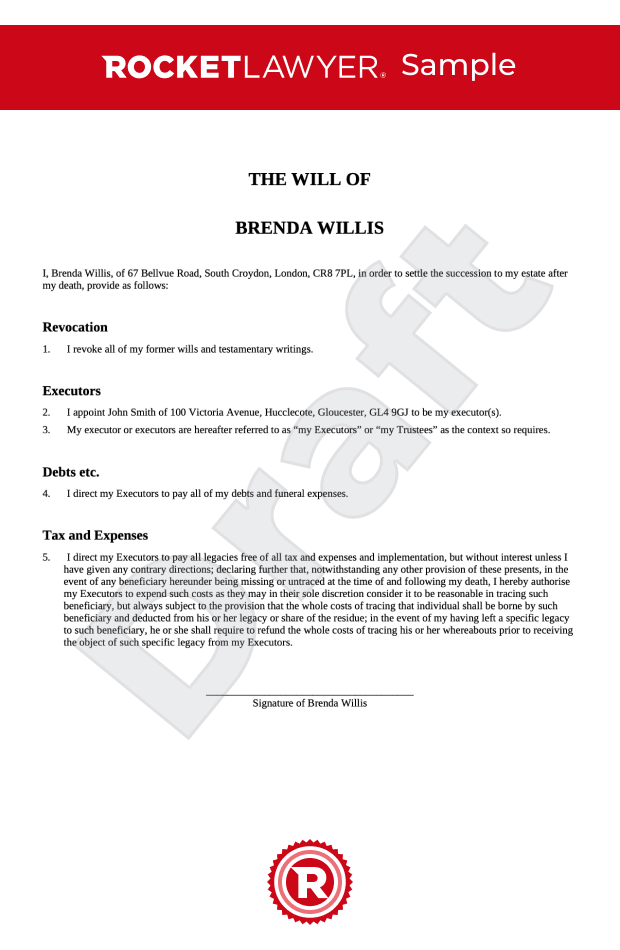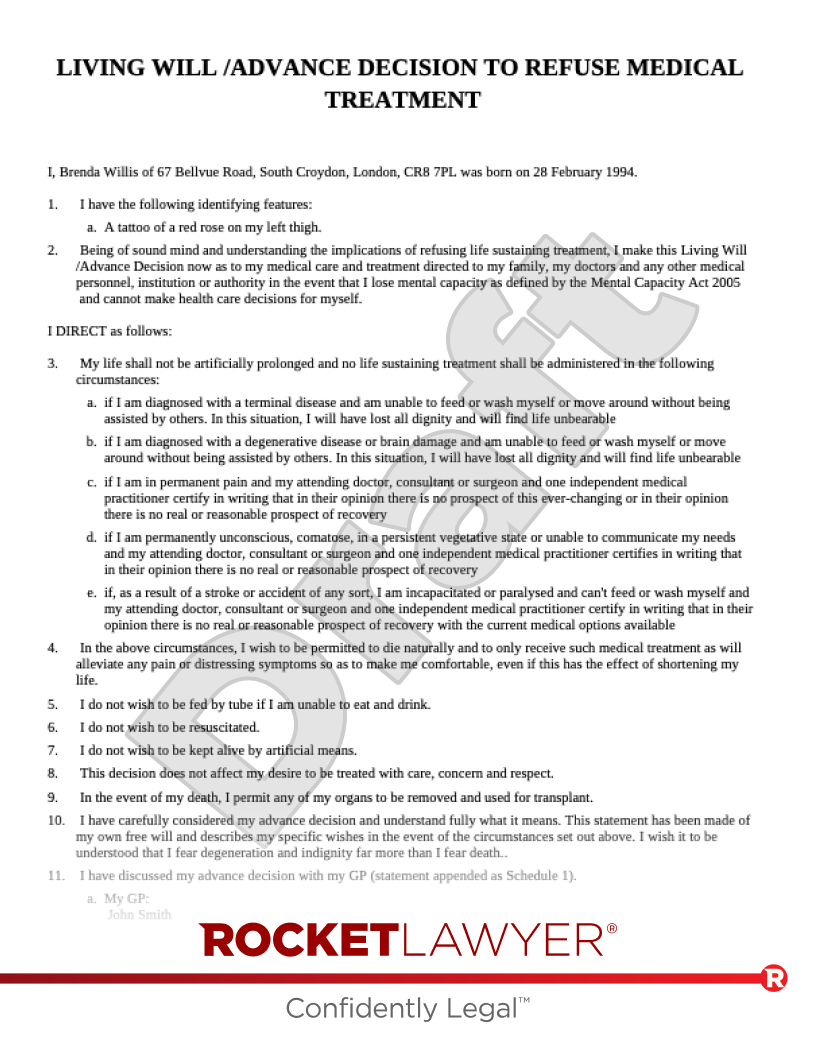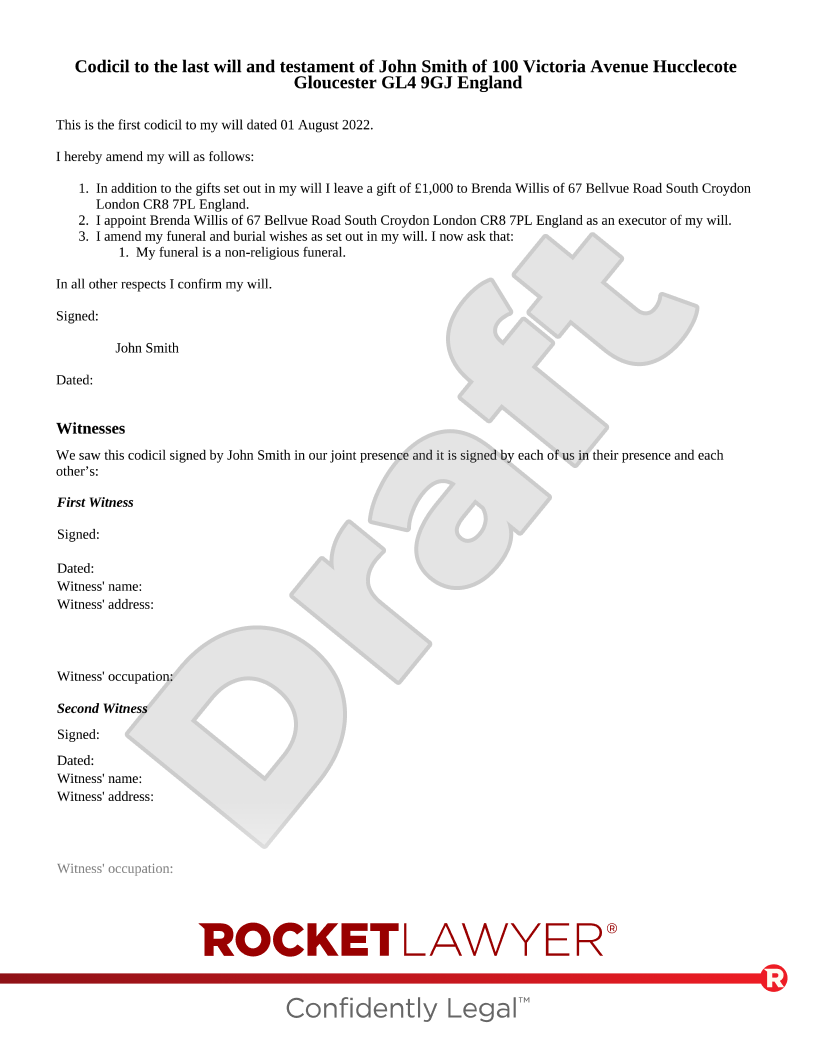OTHER NAMES
Will
Testament
Will and testament
Last testament
Last will
Will and last testament
What is a Will?
A Last Will and Testament sets out how someone's estate, which includes property, savings and other assets, should be distributed after their death. This person is known as the ‘testator’. Wills are essentially a written set of instructions specifying the beneficiaries, who will inherit the estate of the deceased, and the executors, who will ensure that assets are distributed according to the wishes contained in the Will.
For use in England and Wales only.
When should I use a Last Will and Testament?
Use this Will template:
- if you are over the age of 18
- if you are based in England or Wales
- to set out how your estate (ie your belongings including money and property) is to be divided on your death
- if you do not own property outside the UK




